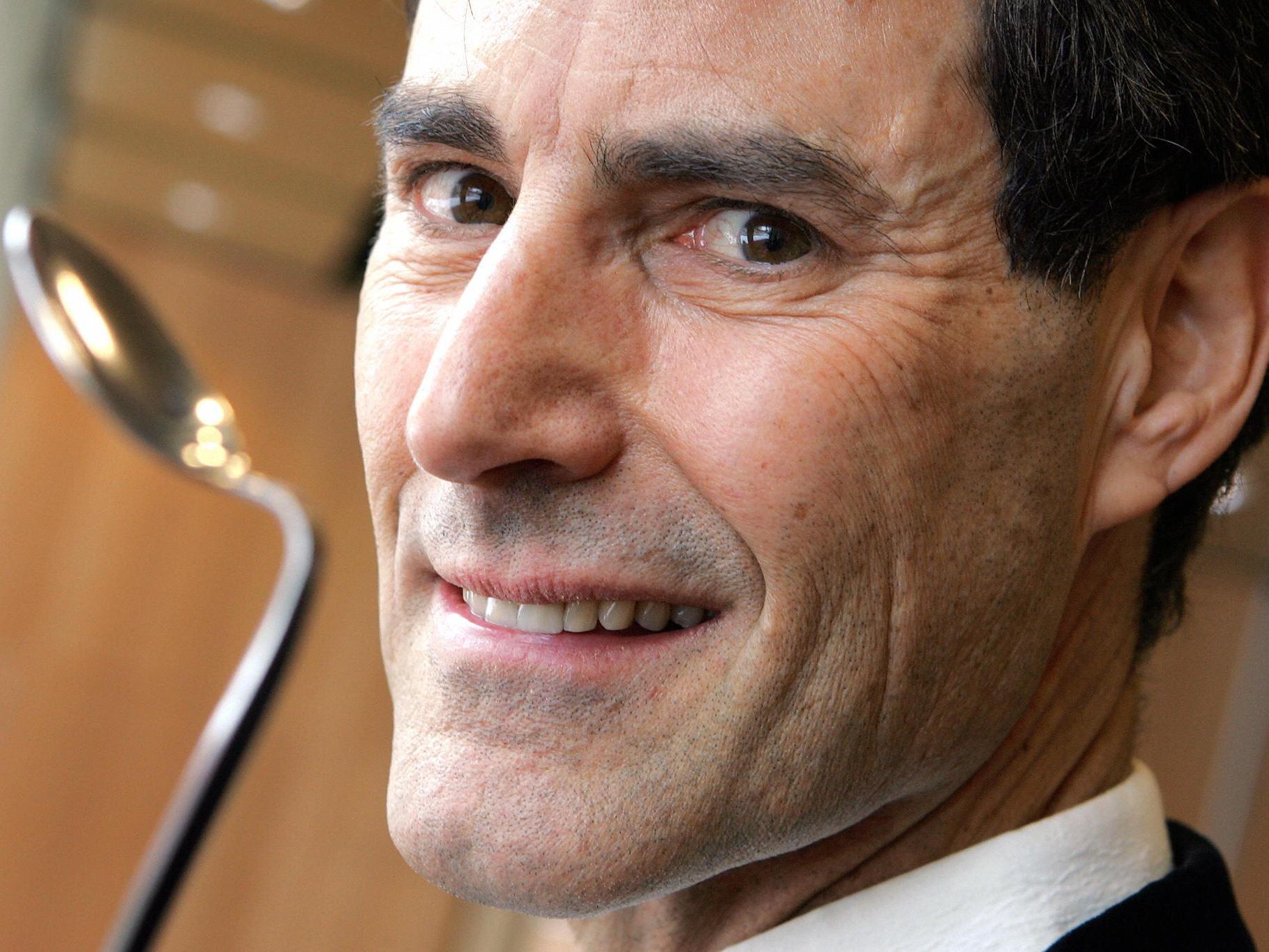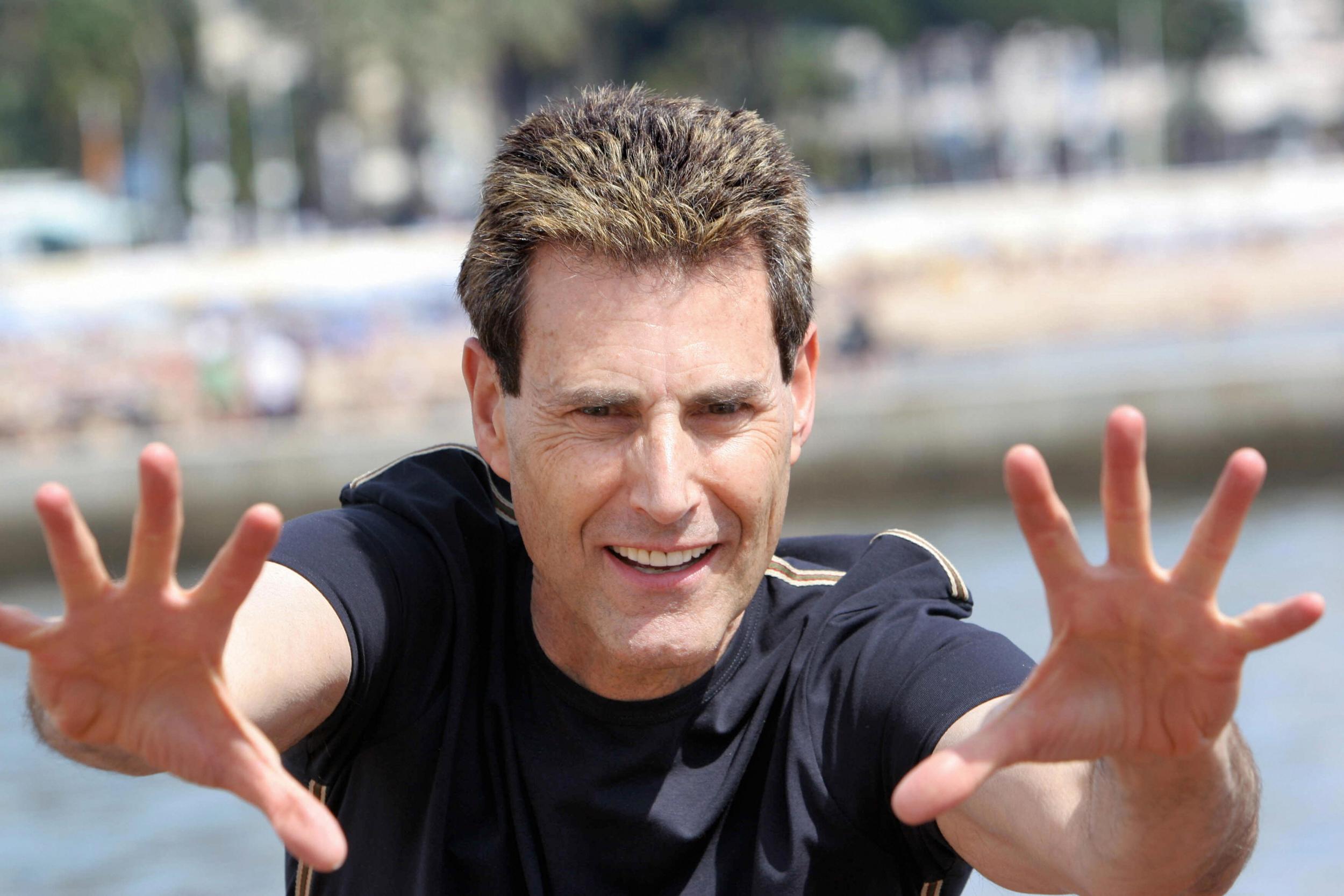Uri Geller on Euro 96 penalty stunt: ‘I was approached by some very high-ranking British people’
Israeli paranormalist came to regret ‘moving’ the ball for Gary McAllister’s crucial penalty, describing his actions as ‘highly unethical’

Your support helps us to tell the story
From reproductive rights to climate change to Big Tech, The Independent is on the ground when the story is developing. Whether it's investigating the financials of Elon Musk's pro-Trump PAC or producing our latest documentary, 'The A Word', which shines a light on the American women fighting for reproductive rights, we know how important it is to parse out the facts from the messaging.
At such a critical moment in US history, we need reporters on the ground. Your donation allows us to keep sending journalists to speak to both sides of the story.
The Independent is trusted by Americans across the entire political spectrum. And unlike many other quality news outlets, we choose not to lock Americans out of our reporting and analysis with paywalls. We believe quality journalism should be available to everyone, paid for by those who can afford it.
Your support makes all the difference.In football’s absence, and with this year’s European Championships postponed due to the pandemic, thousands recently enjoyed ITV’s re-living of Euro ‘96. Three Lions. The dentist’s chair. ‘Gareth Southgate, the whole of England is with you,’ etc. Yet what these reruns sometimes struggle to capture is the feel of the tournament, the particular sensation of being there at the time. That is to say, its ‘energy’.
For an understanding of that, it may be best to speak to Uri Geller. The Israeli paranormalist infamously claimed that, while flying above Wembley in a helicopter during England’s win over Scotland, he caused Gary McAllister to miss a crucial penalty by harnessing that same energy and moving the ball using the power of psychokinesis.
The stunt is one of the best-known and most bizarre tales of the tournament, not least because slow-motion replays appear to show that the ball did indeed roll half-an-inch to McAllister’s right just as he shaped up to strike it. How? Was that Geller’s doing? And if so, what was the secret? “There are no secrets,” he tells The Independent while locked down in Tel Aviv. “The power of the mind is immense.”
If how the ball came to move remains unclear, the background to the stunt is no less mysterious. How exactly did Geller manage to acquire a helicopter and get permission to fly above Wembley? “I was approached by some British... well I won’t mention who they were,” he says. “But some very high-ranking, powered British people who were slightly concerned – you know, although England always beats Scotland most of the time – but they were concerned. They said let’s take Uri Geller, put him in a helicopter and let him fly around Wembley during the match, because they believed in my powers.”
In 1973, Geller underwent eight days of testing with the CIA as part of what would later become known as the Stargate Project, the basis for the Jon Ronson book The Men Who Stare at Goats, later adapted into a 2009 film starring George Clooney. He was subjected to a number of experiments in order to verify his “apparent paranormal perception” and the findings were declassified a few years ago. Geller can repeat the key quote from the report verbatim. And does.
“The CIA concluded – and this is important – ‘As a result of Geller’s success in this experimental period, we consider that he has demonstrated his paranormal perceptual ability in a convincing and unambiguous manner’. I’ve been studied by many, even MI5, MI6, Mossad. My powers are real, no matter how controversial I am and how many sceptics don’t believe. And these guys believed, and they provided the helicopter.”
And so on the day of the match, he took to the sky. The News of The World were involved by this point, with their masthead emblazoned on the side of the helicopter. It would be one of the less jingoistic tabloid stunts of that summer. Before England’s semi-final against Germany, and after depicting Paul Gascoigne in a tin helmet under the headline ‘ACHTUNG! SURRENDER!’, the Mirror attempted to drive an armoured vehicle to the German team’s hotel. It was intercepted somewhere along the M25.
For this slightly more sedate helicopter caper, Geller wore an England shirt, clutched a crystal in one hand and George Cohen’s cap from 1966 World Cup final in the other. A few thousand feet up in the air, he struggled to see the players down on the pitch and only learned about England going 1-0 up through Alan Shearer via radio commentary. Then, as the game entered its closing stages, Gordon Durie won a penalty for Scotland.
“When I heard Gary McAllister was going for the penalty I said: ‘No way! I’m going to move the ball!’,” Geller recalls. “So when he started running towards the ball I simply screamed out: ‘One, two, three, MOVE!’ And lo and behold, the ball moved.” McAllister’s penalty was saved by David Seaman. A minute and two seconds later, Gasocigne – who would have been substituted had McAllister scored from the spot – doubled England’s lead with one of the most iconic goals in Wembley’s history.

While England won and kick-started a run that would only end in the semi-finals, Scotland found themselves on the brink of elimination, and Geller began to hear of his success in moving the ball almost as soon as the helicopter landed. To this day, McAllister believes that half-an-inch was the difference between him scoring and missing. He and Geller have met at charity functions and laughed about it since. “He actually hugged me,” Geller says. “Obviously this was before the corona days!”
Others were less understanding. Once the footage of the ball moving spread, Geller became intensely unpopular in Scotland. “I had around 11,000 hate letters,” he says. “After reading a few of them I simply refused to open all the envelopes because some of them were really rude.” Postmen were delivering hate mail to his home in Sonning-on-Thames, Berkshire for months on end. For someone who places such value in the power of positive energy, the sheer weight of negativity coming back at him was overwhelming and it forced Geller to reflect on his actions.
Later on I realised that what I had done was highly unethical
“I actually really regret the moment I moved the ball,” he says. “Later on I realised that what I had done was highly unethical. You see, it’s OK to inspire footballers. It’s OK to motivate them, to instil inside their brains a positive mental attitude. But it’s another thing to physically interfere with a match – physically, tangibly. Gary McAllister said on many occasions that the ball moved and he missed a penalty because the ball moved. I then realised I had done something highly unethical.”
Geller felt he needed to make amends. “That’s when I decided to give back something to Scotland and that’s why I bought a Scottish island.” He owns Lamb Island, a small uninhabited spot off the coast of North Berwick. Geller was partly drawn to the island by its claims to a mystic past and rumours of buried Egyptian treasure, but repairing his relationship with Scotland was also a motivation. “Since then the letters, the emails and the WhatsApps are very positive,” he says. “I think I’ve made up with the Scottish people.”
And even if he still has deep regrets from that summer, Geller finds himself drawn back to Euro ‘96 over and over again. “I get goosebumps even when I speak to you now,” he says. “There is some kind of an aura to the Euro matches, almost a parallel to the World Cup: even more concentrated, even more powerful, more energetic, more supernatural, more spiritual. It’s hard to explain but it’s focused on Europe and the British fans are amazing – obviously so are the Scottish fans – but whoever you speak to about the Euros and especially Euro ‘96 will tell you that the energy was just enormous. It was mammoth.”
Join our commenting forum
Join thought-provoking conversations, follow other Independent readers and see their replies
Comments